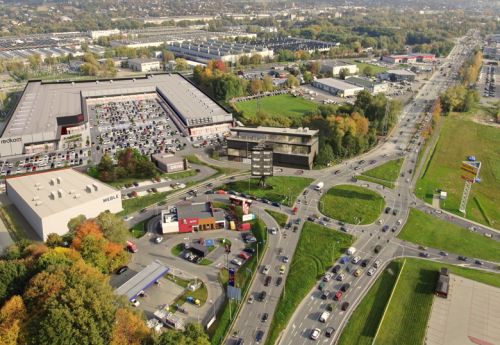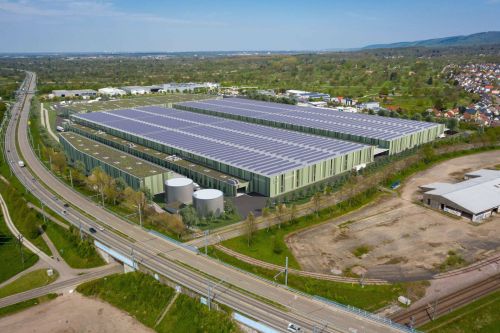Ready to play catch-up
Stock market reportAfter a poor May the mood picked up slightly in June – the shift in Donald Trump’s stance and the stronger economic data enabled the indices in the US to rise to record levels. The main reason was the expected end of interest rate hikes in the US. As a result, there hasn’t been such a good six-month period on the American stock exchanges for twenty years. The thawing of US-China relations at the G20 summit in June also represented a boon for buyers, and so the summer holiday period got underway with some optimism. The central banks – and not just in the US – are expected to want to sustain growth at any cost and so will start pumping additional money into the financial markets, providing a considerable incentive to buy shares. Although they have been rising, the WIG and the WIG20 have been looking a little pallid compared to other indices, in contrast to their rude health at the beginning of the year. The rises of 3–4 pct are four times lower than those seen with the S&P500 (18 pct), the German DAX and the French CAC 40 (which both grew by more than 16 pct). This means that as soon as foreign investors strengthen their purchasing signals, hundreds of millions of dollars could flow onto the Polish stock market, especially considering how good the outlook for the economy is. The slowdown that has been expected for many quarters is still showing no sign of rearing its head. In Q1 the economy grew by 4.7 pct y-o-y (the initial estimate was 4.6 pct, and even that was higher than had been hoped). The reasons for the growth are even more unexpected. Lower personal consumption, a record low unemployment rate (below 5.5 pct) and a rapid growth in salaries all came as something of a surprise – but the real shock was the increase in investment, which came in at its highest level for four years. The balance of trade also contributed. As it turned out, the uncertainty surrounding global trade has had no effect on the Polish economy, which could possibly grow by around 5 pct for the third year in a row. The beginning of July saw the introduction of the government’s employee pension scheme, which has replaced pension funds, and hopes are high that the new measures will stimulate demand on the stock market and revive the Warsaw trading floor, thus encouraging new companies to venture onto its main market. The number of companies considering stock market debuts is quite high. Murapol, a developer that sells more than 3,000 apartments a year, is one notable example if we are just looking at the sectors we are interested in. These sectors ended the Q1 period on the WSE in rather contrasting states. The construction sector is facing the problem of low margins resulting from high material prices, labour shortages and the inflexibility of their clients, especially in the public sector. One effect of their poor results is that the banks that finance them are now viewing them rather differently. This may lead to the renegotiation of loan agreements or in higher prices for new loans. This lower liquidity is leading companies to consider the possibility of raising capital from either existing or new shareholders. Some of the problems are down to impending contracts, while others – as in the case of Elektrobudowa – have resulted from their execution. Petrochemical company PKN Orlen, the ordering party in this instance, objected to the work it had done and so imposed contractual penalties. Mediation is to begin soon and could result in a settlement to the dispute, but the situation has already slashed the construction company’s share price from more than PLN 50 a year ago to its current level of below PLN 10. As a result, Elektrobudowa is to issue shares to raise the capital it needs to extricate itself from the difficulties it now finds itself in. Developers on the stock market, on the other hand, almost seem to be in a different world. Their Q1 results turned out to be very good indeed – gross sales margins of more than 20–30 pct, and in some cases even as high as 40 pct, provide ample evidence that the rising costs of construction have not yet had an impact on their reports, or that they are effectively managing this challenge by taking on the role of the general contractor themselves or focusing on more attractive market niches. Furthermore, according to business journal ‘Parkiet’, their average gross margin on sales is now higher than it was a year ago. The top three places in a ranking of compiled by the publication were respectively taken by Lokum, LC Corp and Unidevelopment (part of the Unibep group). One of these companies, by the way, is changing its name. Last June it was agreed at its AGM that it was to be renamed Devalia – which certainly is a break with the past, since the developer was once controlled by Leszek Czarnecki. ν (Mir)
Economies growing despite everything
It was not only for the Warsaw trading floor that the first half of the year was less than favourable. The Hungarian BUX index has only risen 3 pct since the beginning of the year, while the PX50 in Prague recorded growth of just over 5 pct over the six months. The mood in the Czech Republic has been tense for political reasons, with the government surviving a vote of confidence after thousands of people demonstrated against corruption; but the economy – just as in Poland – is growing faster than expected. And in Hungary the GDP growth has been even higher, in excess of 5 pct.





















































